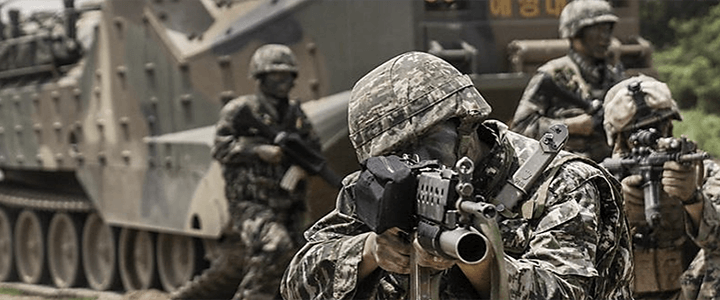On Tuesday, the first anniversary of his Senate confirmation, CIA Director Mike Pompeo spoke publicly with Marc Thiessen, resident fellow at the American Enterprise Institute, a conservative Washington think tank. The times Pompeo speaks in public are, in his own words, “few and far between,” so the AEI talk was a rare chance to get a look into the thought process of the man atop the nation’s premiere intelligence gathering organization.
In his discussion with Thiessen, Pompeo did a fairly good job dispelling the rumor that President Trump is not receiving his Presidential Daily Brief, going so far as to describe the president as someone who can receive information at the same level as a 25-year intelligence professional.
Korea on his mind
But most interestingly for our purposes, Pompeo dedicated a good portion of his talk to one of our favorite topics here at Daily Intel — North Korea. It’s worth looking at how his remarks illuminate the administrations’s thinking and decision making.
Most significantly, Pompeo repeated his prior assertions that the DPRK is “a matter of months” away from “being able to hold America at risk.” He did, however, say the CIA is “working diligently to make sure that a year from now I can still tell you they are several months away from having that capacity. It’s not a static time frame.”
Taken at face value, this doesn’t seem to be that remarkable a statement. But I think it exposes a belief inside the intelligence community that, as we’ve discussed here, North Korea may not have all the puzzle pieces in place to truly put the U.S. in its nuclear crosshairs, but is trying its hardest to get there as quickly as it can.
Thiessen asked a very relevant question: how could the DPRK could go “from a dozen unsuccessful tests a year ago” to launching an ICBM cable of hitting the United States? One almost wishes Pompeo would dramatically reveal that the U.S. was able to compromise the Koreans’ supply chain and infect their missile program with faulty parts, only to be discovered and countered. Naturally, he did not indulge.
Rational actor, within limits
But Pompeo did confirm what I’ve been saying here: the U.S. government officially believes North Korean ruler Kim Jong-un is a “rational actor.” One would assume that this meant that he was not trying to start a nuclear war, but simply trying to preserve his position. Pompeo, however, wasted little time in pivoting from his agreement with the assertion that KJU is a rational actor to staking out a position that hasn’t necessarily received the attention it deserves.
“We don’t think it’s the case that he’s simply going to use this tool set [nuclear weapons] for self-preservation,” Pompeo said. This somewhat contradicts the rational actor theory, seemingly informing many alarmists’ point of view that KJU is looking to use his nuclear capability on the offensive.
Pompeo was likely speaking directly to KJU, not to the American public, when he discussed how the U.S. might deal with the Korean threat. The director reinforced the idea that a military solution is not at the top of the list of options. “The president is intent on delivering this solution through diplomatic means,” he said. But he went on to say that the national security establishment was focused on presenting the president “with a range of options that can achieve what is his stated intention,” i.e., a denuclearized Korea.
“U.S. policy is that we’re going to denuclearize permanently,” Pompeo said in response to an audience question. “We’re going to foreclose this risk.”
We’re a long way from figuring out how to achieve that, though.




